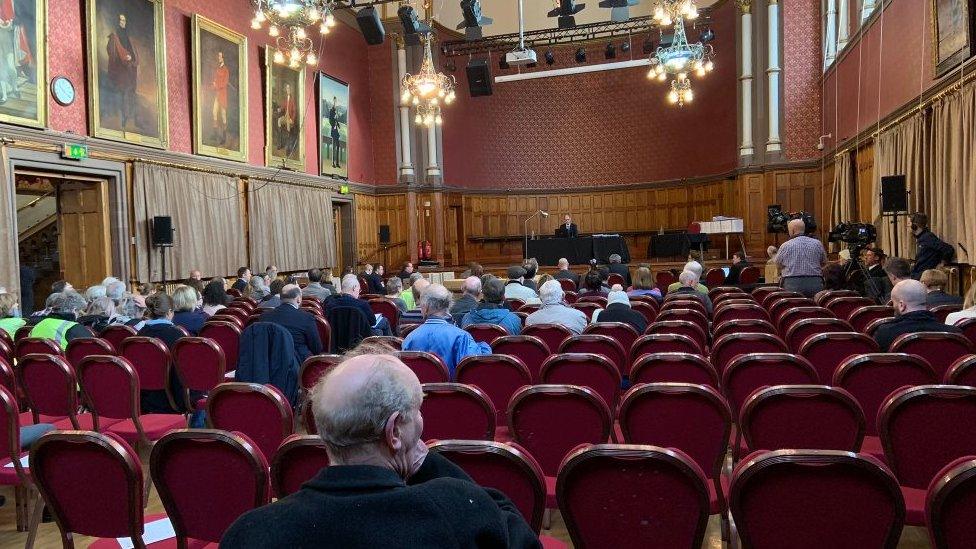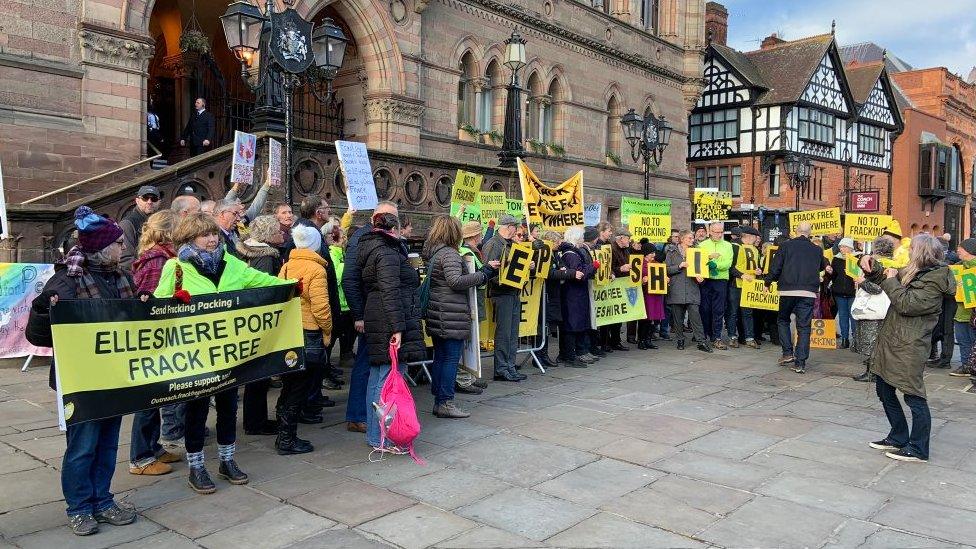IGas's Ellesmere Port plans 'incompatible' with climate targets
- Published

The inquiry at Chester Town Hall is the first to look into the effects of onshore gas on climate change
Plans for an onshore gas site in Cheshire will make it "less likely" the UK will meet its commitments on global warming, a public inquiry has heard.
In January 2018, Chester and Cheshire West Council rejected IGas's plan to test for gas by injecting acid into a well next to the M53 at Ellesmere Port.
The energy company denies protesters' claims that the work would have a negative impact on the environment.
IGas's appeal is being heard by a government planning inspector.
The UK has committed to legally binding carbon budgets, external, which restrict the amount of greenhouse gases the UK can emit over a five year period.
Local MP Justin Madders said production at the Portside North site, if approved, would lead to higher carbon dioxide emissions though.

Anti-fracking campaigners staged a protest outside the inquiry
The Labour MP said: "The more that we look to rely on new forms of energy generation that create carbon dioxide emissions, the less likely we are to be able to meet our climate change commitments."
IGas wants to conduct flow tests on underground rock formations by injecting acid to "clear debris" and establish whether commercial hydrocarbon production can take place.
Opponents told the inquiry at Chester Town Hall on Friday that the effects of the test method could be "similar" to the effects of fracking.
Boreholes were drilled on the land in 2014, making it the first onshore gas site in the UK to be located in a town.
Local councillor Pat Merrick told the inquiry: "I am not opposed in principle to the need to extract shale gas because it's fine in great big open countries, but it is not fine in Ellesmere Port."
Nicholas Strachan, representing IGas, told the inquiry that the company's test method was "standard oil field practice" and would have no environmental consequences.
- Published27 December 2018

- Published14 January 2020

- Published8 October 2018
